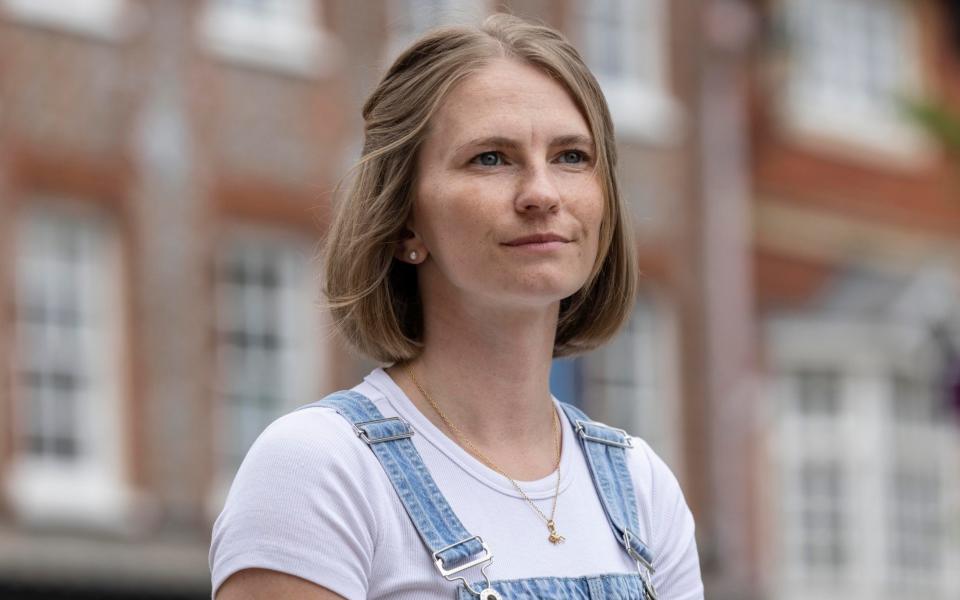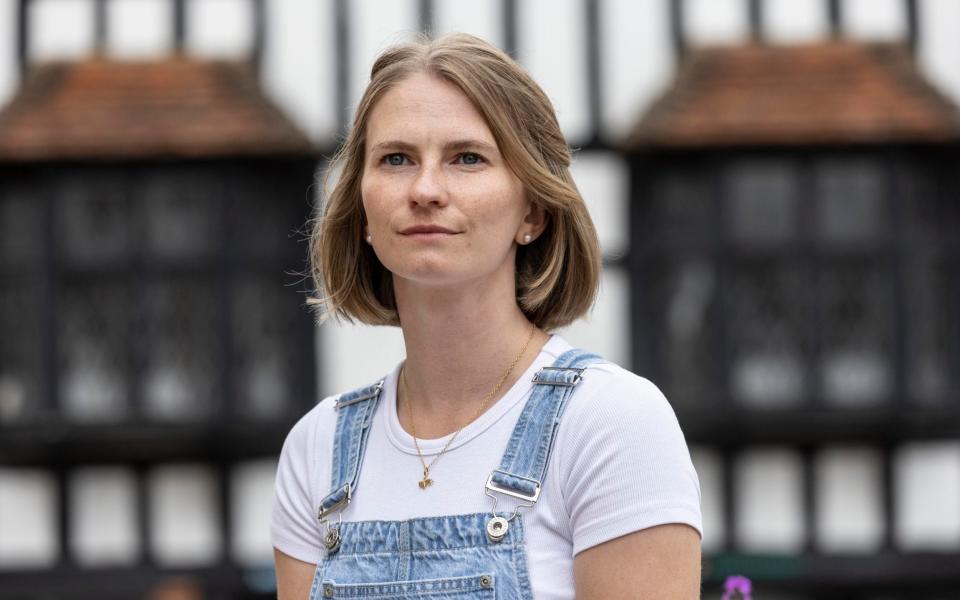Erin Kennedy: I didn't think 'Am I going to die?' I thought 'Can I still go to the European championships?'

Erin Kennedy pressed ‘send’ on the WhatsApp message to her team-mates without hesitation. “This is what I’d like you to know,” it read. “I’m still coming out to race. Don’t ask me if I’m okay - and no overextended hugging.”
Instead of flying out with the team to Belgrade for the first World Cup of the season two months ago, the British rowing cox had been called to an impromptu hospital appointment and was told the worst: she had breast cancer.
“You hear that and you hear red sirens,” says 29-year-old Kennedy, in her first interview since her diagnosis. “Then all of a sudden you’re in this fast paced world. It was a very weird moment where your life has all of a sudden forked off in another direction.”
Kennedy does not want to conceal the graphic details in her story because, she says, it could save someone’s life. She was in the shower when she discovered a lump near the top of her left breast during the middle of an intense training camp in Italy two months ago and had a suspicion something was not right.
“I thought I’d check it again in a couple of days, because your boobs can change around your periods,” she explains. “I checked again in a few days and I was like, ‘S---, that is a lump.’ I could feel it and it definitely just wasn't tissue. It was quite solid. I could see it if I pulled my skin because it’s quite close to the surface.”
Still in her late 20s, Kennedy - a double world champion, European champion and world-record holder in the mixed coxed four who earned an MBE for services to rowing this year - falls into the four per cent of breast cancer cases found in UK women under the age of 39.
“I felt so annoyed,” she says of her diagnosis. “That was the prevailing emotion, rather than despair or sadness. Genuinely, one of the first things I was thinking of when they told me was, ‘What about rowing?’ That’s the sportsperson’s response.
“It wasn’t, ‘Am I going to die.’ It was, ‘Can I go to the European championships in August?’ That’s a whole reframing which I’m still working on to be honest.”

Kennedy has already started scaling back her schedule, having turned down an offer to cox a women’s eight boat at this weekend’s Henley Royal Regatta. She was, however, determined to fly out to the World Cup in Belgrade in May, in a bid to win the one international title that had eluded her since she joined the British team five years ago.
In a testament to her positive outlook, she wanted minimal fuss, hence revealing the news to her team over WhatsApp.
“I wanted them to process it a bit before I got there so we could hit the ground running,” she recalls. “I wanted them to treat me the same - as Erin the cox - because we had a job to do.”
She guided the PR3 mixed coxed four of Ollie Stanhope, Ed Fuller, Giedre Rakauskaite and Frankie Allen to an emotion-fuelled gold.
Four weeks ago today, I was diagnosed with breast cancer.⠀
⠀
Four days later, I won my first ever World Cup gold medal.⠀
⠀
Competing at this event was so important to me. It was an opportunity to go do what I do best - live life fully and joyfully and not let anything get (1) pic.twitter.com/Va7j56OEU4— Erin Kennedy MBE (@ErinWysocki) June 22, 2022
“The thing that gets me most emotional was that we were 0.3 seconds off the world’s best time,” smiles Kennedy, who is due to start an “ultra-marathon” of chemotherapy in the next fortnight, which will be ongoing until Christmas.
Thankfully, the prognosis is positive, with the cancer caught in the early stages. But as an athlete, there are other implications to consider. “I’m going to be taking some mega drugs - some of the things I’ll take may well be prohibited out of competition,” she says. “Things like that I have to explain to my nurses. I need to know everything that is going into my body.”
There is also the risk that chemotherapy could impair her ability to have children, so she is being induced into an artificial menopause to protect her ovaries and is also exploring the possibility of egg harvesting.
If there is one key message Kennedy wants to get across, it's this: “One of the hardest things about checking your boobs is…how often do you feel anyone else’s boobs? What’s normal to you might be different for someone else,” she says, “but checking them can save your life.”

 Yahoo Sport
Yahoo Sport 





































